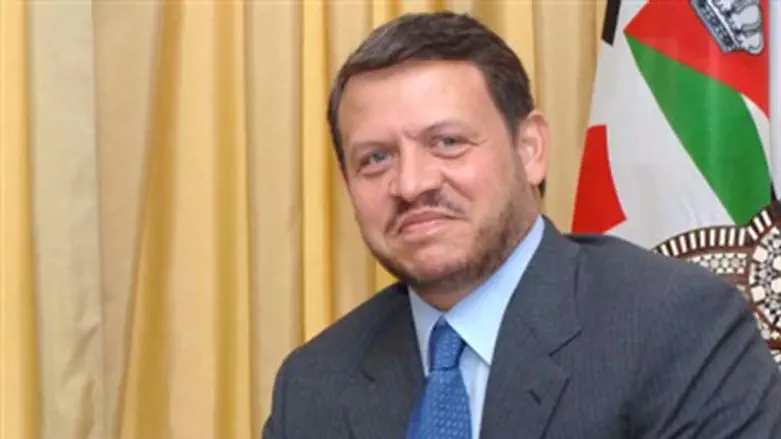
Jordan's King Abdullah II said on Wednesday that the attack that killed members of Syrian President Bashar al-Assad's inner circle is a “tremendous blow to the regime.”
Speaking in an interview on CNN, the king cautioned that he did not think the attack meant Assad's regime was about to crumble immediately.
Wednesday’s explosion in central Damascus killed Defense Minister Dawood Rajiha; Deputy Defense Minister Assef Shawkat, Assad's brother-in-law; Hasan Turkmani, Assad's security adviser and assistant vice president; and Interior Minister Mohammed Ibrahim al-Shaar.
“This was a tremendous blow to the regime but again, Damascus has shown its resilience, so I think maybe we need to keep this in perspective,” King Abdullah told CNN. “Although this is a blow, I'm sure the regime will continue to show fortitude at least in the near future.”
The king said the attack certainly shows "cracks" in the regime, but his larger concern is the growing sectarian violence and whether it may lead to all-out civil war.
He said the danger of civil war is increasing, and it is Assad's last chance to try to stop that from happening.
“If it breaks down, if civil order breaks down to the point of no return, it will take years to fix Syria,” said King Abdullah. “I have a feeling we're seeing the signs of that. The only people that can bring us back from that brink is the president and the regime. This is the last chance they have.”
The king said the international community is continuing to pursue all options involving a political transition, but that recent events made him concerned about whether they could work.
“I think as we continue to pursue the political option, the realities on the ground may have overtaken us,” he said. “Therefore I think the clock is ticking. I think we should continue to give politics its due, but if we haven't already passed that window, I think we're getting very close to a (civil war).”
King Abdullah also noted that he and other leaders are still concerned about Syria's chemical weapons.
“One of the worst-case scenarios, as we are trying to look for political solutions, would be if some of those chemical stockpiles would fall into unfriendly hands,” he said.
He said that the big concern is whether the weapons could fall into the hands of groups like Al-Qaeda, which he said he believes is operating in parts of Syria.
The king noted that not knowing who exactly is on which side complicates matters further, including when it comes to talk of arming the rebels.
Defense Minister Ehud Barak met on Wednesday with senior military commanders to discuss the recent escalation of violence in Damascus.
Nawaf Fares, the first Syrian ambassador to defect since the uprising against Assad began, told the BBC on Monday that Assad will not hesitate to use chemical weapons against opposition forces.
Fares, a former ambassador to Iraq, insisted that Assad’s days are numbered but warned that the president would be prepared "to eradicate the entire Syrian people" in order to remain in power.
"I am convinced that if Bashar al-Assad's regime is further cornered by the people -- he would use such weapons," Fares said.
Rebels and government troops have clashed in the streets of Damascus for several days, in the fiercest fighting in the capital since the revolt against Assad erupted last year.
The rebels have stated they will intensify attacks inside Damascus and target sensitive security installations in what they call an operation to “liberate Damascus.”
